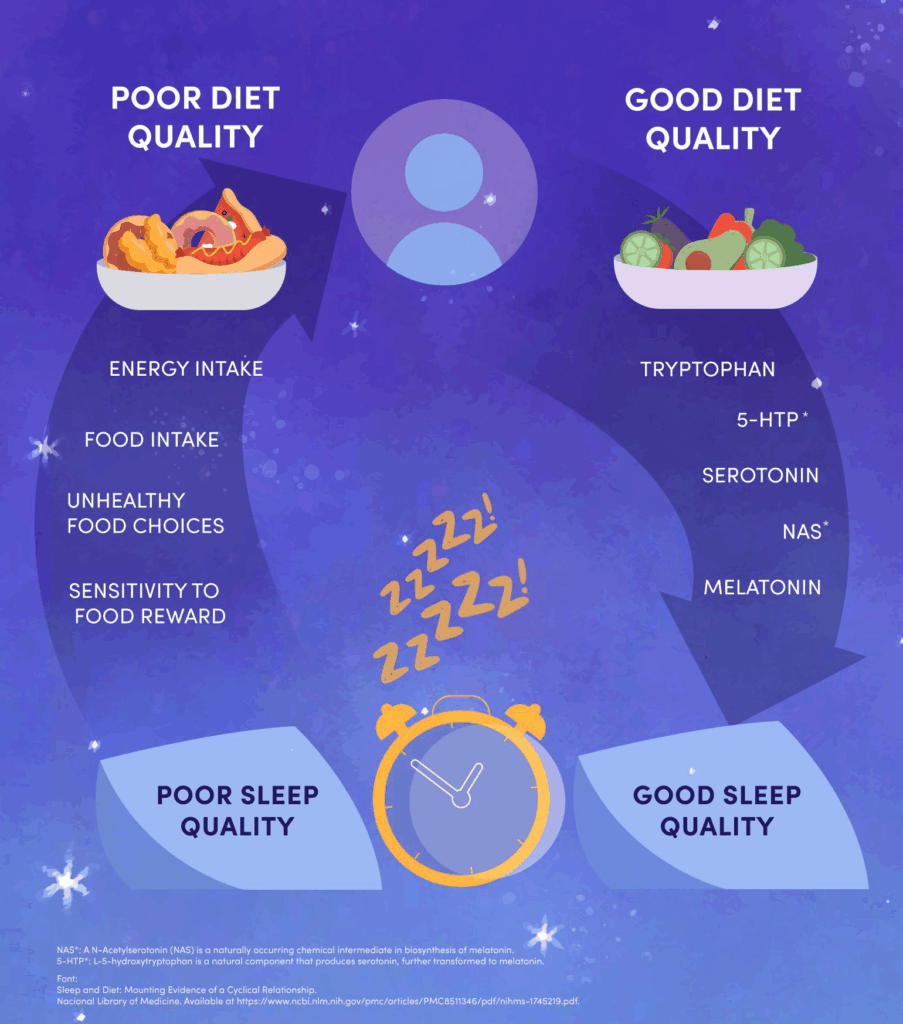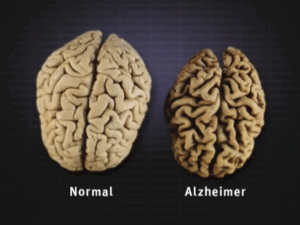Which nutrient-filled foods are best and worst for achieving quality sleep?
Have you ever been twisting and turning in bed, unable to fall asleep? This wakefulness could be caused by the food you eat. Sleep is an important part of your health; while you sleep, your body repairs and rejuvenates cells. Without proper sleep, your motor skills, performance, and critical thinking are negatively impacted. Sleep deprivation can also lead to memory impairment, heightened stress, and immune dysfunction.
There are several hormones that control sleep, and eating certain nutrients and foods that contain these ingredients can improve your sleep quality. According to the Journal of Clinical Sleep Medicine, reducing refined carbohydrate intake and eating high-fiber, low-saturated fat-foods can improve sleep quality. Some nutrients like Vitamins B6, B12, and folic acid, along with some hormones like serotonin and melatonin, can also help with sleep quality (1).

Your brain relies on serotonin to make melatonin, the hormone that controls your sleep-wake cycle (2). Serotonin and melatonin are both hormones your body uses to help you fall asleep. They are created by tryptophan, which is an essential amino acid that your body cannot produce on its own and must acquire from your diet. Eating foods that are rich in these will set you up for quality sleep (3). Good protein-filled sources of tryptophan include turkey, chicken, fish, eggs, cheese, edamame, peanuts, tofu, quinoa and pumpkin seeds. A good source of melatonin-rich foods include tart cherries, unsweetened tart cherry juice, eggs, milk, pistachios and almonds (4). The mineral magnesium is also linked to improved sleep quality, similar to tryptophan. Including magnesium-rich foods such as spinach, nuts, avocados, and black beans in your diet can also help with the quality of sleep (1). With an efficient schedule and a soft pillow, eating these foods will ensure much better sleep.

Overall, the foods you eat play a crucial role in your bodily functions. Consuming nutrient-rich foods that are high in tryptophan, magnesium, melatonin, and certain B vitamins can naturally support your body’s ability to fall and stay asleep. These nutrients are essential for regulating your sleep cycle and supporting the production of hormones like serotonin and melatonin. By making mindful dietary choices and including these sleep-supportive foods in your routine, you can significantly improve your sleep quality and overall well-being.
Bibliography:
- 6 Foods to Improve Your Sleep Quality. (2024, March 31). MedPark Hospital. https://www.medparkhospital.com/en-US/lifestyles/6-foods-to-improve-your-sleep-quality#:~:text=Foods%20high%20in%20magnesium,can%20help%20with%20your%20sleep
- Clinic, C. (2022, March 24). Serotonin: What Is It, Function & Levels. Cleveland Clinic. https://my.clevelandclinic.org/health/articles/22572-serotonin
- Tryptophan: MedlinePlus Medical Encyclopedia. (2023). Medlineplus.gov. https://medlineplus.gov/ency/article/002332.htm
- Staff, N. M. (2025, June 17). Eats to Help You Sleep. Northwestern Medicine. https://www.nm.org/healthbeat/healthy-tips/nutrition/eats-to-help-you-sleep
Images:






Comments are closed.